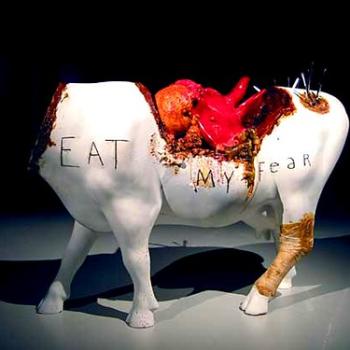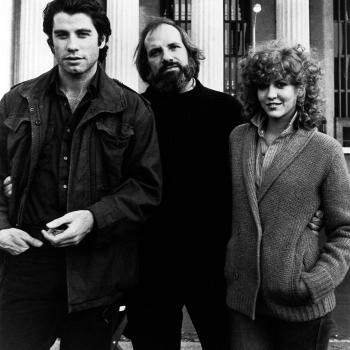Eckhart, contra many previous writers, sees Martha as the perfect one. Mary is told to remain still, because she has not yet mastered contemplation so as to engage in the affairs of the world. It’s no surprise, of course, that Eckhart was a busy man himself: working as a Scholastic theologian, a Dominican official, and a confessor and writer of sermons.
The point, then, is fairly simple: urbanization in medieval Europe helped to spur on changes in how people saw the “cloister,” how they did theology. This is something that, I think, Rod Dreher gets, hence the subtitle to his newest book: A Strategy for Christians in a Post-Christian Nation. He has been fairly clear that his book exists to equip Christians for a new sort of world, one that has left Christianity behind. For example, in one blog post, he writes:
The point is, I strongly disagree with Rusty that churches are going to be okay because they’re not collapsing as fast as Masonic lodges and bowling leagues, or they don’t have the same problems as universities. The crisis of our churches is in truth a crisis of the church in a post-Christian culture. Most Christians are go-along-to-get-along types who either don’t see the depths and the essence of the crisis, or don’t want to see it, because it would oblige them to do things that are hard, that we naturally don’t want to do. I get that. I struggle with it in myself. But really, we don’t have a choice. It’s not for nothing that Pope Benedict XVI said that the West is facing its most serious spiritual crisis since the fall of the Roman Empire. If you don’t believe me, believe him.
I do write with alarm in The Benedict Option, because I believe there’s a lot to be alarmed about — and because we can and must do things to get through this crisis. It’s not going to be easy, but what else is there?
His argument hinges on a simile: we live in a time not dissimilar from that way back when, when the Roman Empire fell. Then was like now. But is this really the case? I wonder if our time isn’t more like that of St. Francis. We have an increasingly urban society brought away from the Faith by the dangers of city living, of squalor and, frankly, pastoral challenges. We live in a movement in which the Church is as big as it has ever been, yet, to many, feels corrupt (whether liturgically, bureaucratically, whatever). The parallels with the age of Francis are strong.
I’m not suggesting some sort of “Francis Option” (that term has already been coined). I don’t have some neat set of commandments or suggestions to hand down. What I have is one of the few things I can as a literary historian: history. If our age is more like St. Francis’, it might be more engagement we need, more calls to convert and repent within the Church and outside its bounds (thus calling people into the fold). The aforementioned National Catholic Register piece puts the mood we ought to aspire to well:
Francis was not a culture warrior. He didn’t see creation as “a problem to be solved,” as Pope Francis put it — and he didn’t see culture that way either. Others were building places to preserve culture against attacks (a work the Church always needs); he decided to be powerless before others. He was only concerned with being one with Christ in his beliefs, actions and decisions.
He also wasn’t a whiner. He refused to complain about priests, even when his rights were being trampled on. He didn’t complain that the Church was being too Catholic or not Catholic enough, or that the Pope’s priorities were wrong, or that bishops and priests had become corrupt or lazy.
As the late, great Msgr. Lorenzo Albacete once said, and I’ve quoted it before: “If tomorrow it was revealed that the pope had a harem, that all the cardinals had made money on Enron stock and were involved in Internet porno, then the situation of the Church today would be similar to the situation of the Church in the late 12th century … when Francis of Assisi first kissed a leper.”
I think this approach is suited to our times for a couple of reasons: First, because the power of modern secularism is vastly overrated. It is a decadent system with no interior consistency that has deliberately sterilized itself. It causes enormous unhappiness and anxiety. It is defensive and noisy like a hyena, not strong and silent like a lion. (National Catholic Register)
An urbanizing, globalizing world awaits. It’s up to us how to confront it.













